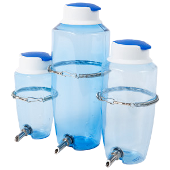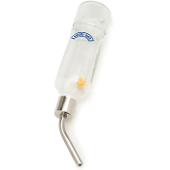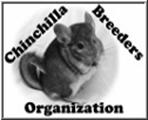Chinchillas need to have access to fresh, clean water at all times. Water bottles should be kept clean and the water should be emptied and replaced daily even if the bottle still has water in it. Water that is allowed to remain in the bottle for even a few days can begin to grow algae and bacteria causing illness. The bottle should be cleaned at least once a week. A wide variety of water bottles exists. Pictured on this page are a few examples of what is available.
Not just any water is acceptable for chinchillas. They have very sensitive digestive systems. Chemicals and parasites that are present in tap water can be at levels low enough to be acceptable for human consumption while still causing problems for chinchillas. For this reason, chinchillas should never be given tap water. Instead, filtered water should be used for them.
Some of the issues with tap water include chemicals added by the treatment plants such as chlorine, chloramine, fluoride, and pesticides. These chemicals can, over a period of time, cause medical problems for a chinchilla. Additionally, microbial cysts, such as giardia and cryptosporidium can be present in tap water. When these cysts reach the stomach of a chinchilla, they can cause diarrhea, nausea, and stomach cramps. In chinchillas, diarrhea is a serious issue and, if left untreated, can result in death.
To avoid these problems, chinchillas should be given filtered water. Bottles of water can be purchased from a local retailer. Make sure that the label on the water states that the water was purified by filtration or reverse osmosis. Water from a pitcher, faucet mounted filter, or an under the sink unit are all acceptable as long as the system states that it filters out microbial cysts. Reverse osmosis systems all filter out microbial cysts.





 Site Last Updated on December 31, 1969 05:00 pm
Site Last Updated on December 31, 1969 05:00 pm